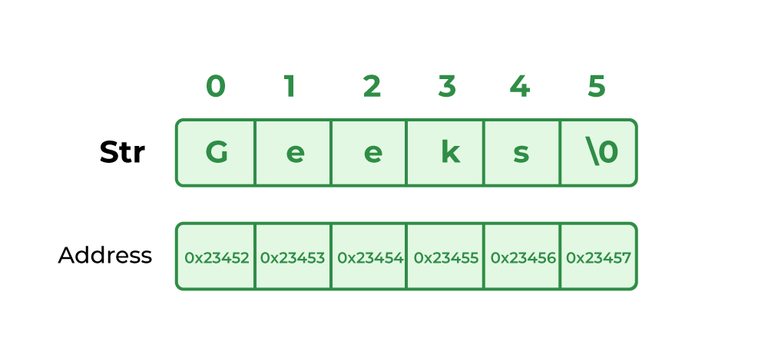Why Are Strings Immutable in Java? Exploring the Layout Decisions
Why Are Strings Immutable in Java? Exploring the Layout Decisions
Blog Article
What Is Unalterable Strings and How It Works
In the realm of programs, recognizing the idea of unalterable strings is extremely important for creating robust and protected applications. Immutable strings refer to strings that can not be changed after they are created, making sure information integrity and predictability within the code.
The Fundamentals of Immutable Strings
Immutable strings, as an essential principle in shows, are personality sequences that can not be transformed once they are developed. This indicates that once a string is appointed a worth, that value can not be altered. In languages like Python and Java, strings are unalterable items, leading to numerous ramifications in regards to memory monitoring and information integrity.
Among the crucial benefits of unalterable strings is that they provide a sense of safety and security in data adjustment. Considering that the web content of an immutable string can not be modified, it makes certain that the initial information continues to be undamaged, decreasing the danger of unintended modifications throughout program implementation (Why are strings immutable in Java?). This building also simplifies debugging procedures, as developers can trust that as soon as a string is specified, its value will not be unintentionally modified
In addition, unalterable strings assist in effective memory usage. When a brand-new string is produced based upon an existing one, as opposed to customizing the initial string, the brand-new worth is stored individually. This approach improves efficiency by decreasing memory fragmentation and streamlining memory allotment processes. Generally, understanding the basics of unalterable strings is essential for understanding programming ideas and enhancing code efficiency.
Advantages of Unalterable Strings
Building upon the protection and performance advantages of unalterable strings, their advantages encompass improving code dependability and simplifying simultaneous programming tasks. By being unalterable, strings can not be customized after production, which gets rid of the danger of unintentional adjustments in the information they save. This integral immutability makes sure that as soon as a string is created, its worth stays consistent throughout the program's execution, lowering the possibilities of insects brought on by unexpected modifications.
In addition, immutable strings contribute to code reliability by making it simpler to reason regarding the state of a program. Because strings can not be altered, designers can trust that a string will certainly always hold the same worth, streamlining debugging and maintenance initiatives. This predictability results in more secure and trustworthy codebases.
Application in Shows Languages
Within different programs languages, the unification of unalterable strings is a basic element that influences how data is dealt with and manipulated within code frameworks. The execution of immutable strings differs across different programs languages, with each language supplying its own devices to support this idea.

On the other hand, languages like C and C++ do not have built-in support for immutable strings. Programmers in these languages have to manually apply immutability by enforcing policies within their code to stop straight modifications to string objects.
Finest Practices for Working With Immutable Strings
When taking care of unalterable strings in programming languages like Java and Python, adhering to best techniques makes certain safe and reliable data control. Among the crucial ideal methods is to use StringBuilder or StringBuffer rather than straight adjusting strings, especially when dealing with considerable concatenation procedures. These classes provide mutable options for string manipulation, aiding to prevent unneeded memory allocations and improving efficiency.
Another best practice is to utilize string interpolation or formatting works given by the language rather than hand-operated concatenation. This not just enhances readability yet likewise aids in preventing typical mistakes read the article such as unintentional string alterations. Furthermore, when dealing with delicate information such as passwords or API keys, it is important to avoid keeping them as ordinary message in immutable strings. Making use of safe and secure storage space systems like char arrays or specialized libraries for dealing with delicate information helps reduce protection dangers connected with unalterable strings.
Real-world Applications and Instances
Discovering useful applications of unalterable strings in numerous sectors reveals their substantial effect on data integrity and system dependability. In the healthcare market, immutable strings play a vital role in ensuring the safety and security and confidentiality of client information. By preventing unauthorized adjustments to delicate information such as clinical documents and prescriptions, immutable strings assist keep conformity with stringent privacy laws like HIPAA.
Banks likewise gain from the unalterable nature of strings to boost the safety and security of consumer information and purchase documents. Unalterable strings aid stop fraudulence and unapproved alterations to economic information, providing a durable protection against cyber dangers and ensuring the count on and confidence of clients.

Final Thought
Best practices for working with unalterable strings include staying clear of direct modifications and utilizing methods that return new string items. Real-world applications of immutable strings consist of information security, caching, and string manipulation jobs.
Immutable strings refer to strings that can not be modified after they are created, making certain data stability and predictability you could look here within the code. When a brand-new string is developed based on an existing one, instead than changing the initial string, the new worth is stored separately.In languages like Java and Python, strings are unalterable by default, suggesting that when a string object is developed, its worth can not be altered - Why are strings immutable in Java?. Finest practices for functioning with unalterable strings consist of preventing straight modifications and utilizing methods that return brand-new string look at this website things. Real-world applications of immutable strings consist of information security, caching, and string adjustment tasks
Report this page